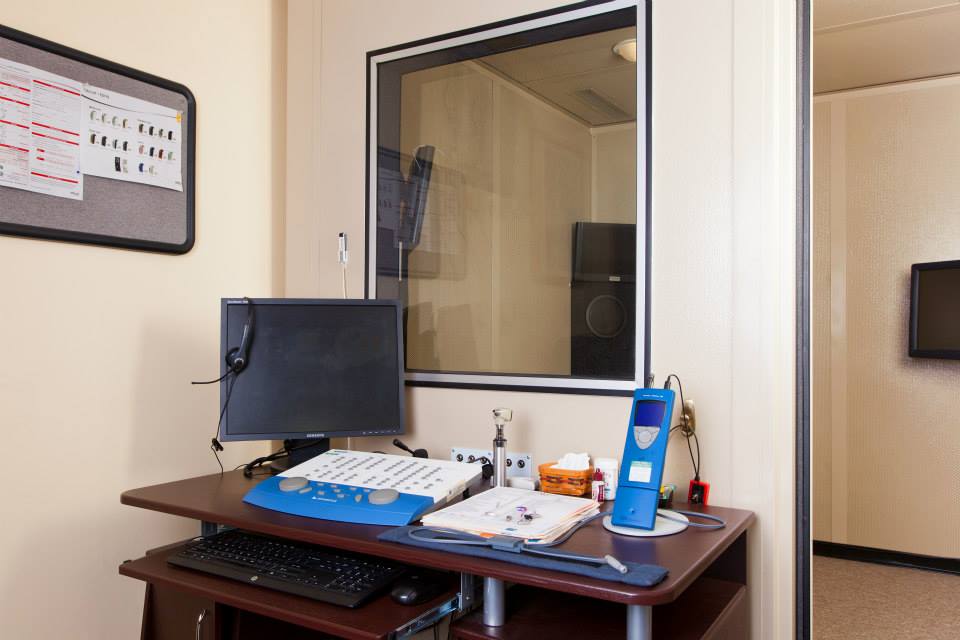Better Hearing Blog

Gene Behind Otosclerosis Identified
“Otosclerosis” is a hereditary condition that affects one in 200 people. It results in conductive hearing loss that causes individuals to begin to lose their hearing in their 20s and 30s as a consequence of abnormal bone growth in their middle ears. As a consequence of the stapes bone’s inability to move freely, sound waves entering the ear can no longer be transmitted to the inner ear. While current treatments include use of hearing instruments or surgery to remove the affected middle ear bone and replace it with a prosthetic device, recent research has found that faults in the body’s SERPINF1 gene can cause otosclerosis, which holds out the promise for other treatments in the future.
At BETTER HEARING CENTER, we pledge to employ a trustworthy, professional staff, provide high-quality service, feature innovative testing and evaluation equipment, offer a large product selection, and maintain the best prices in the area. For more information, please call us today. Our expertise is measured by our commitment to patient satisfaction, continuing education, and the application of current technologies. New Hampshire’s premier hearing care provider.
P.S. The surgical procedure that involves removal of an immobilized stapes bone and replacing it with a prosthetic device is known as “stapedectomy.”

Selective Listening
Many parents claim they can hear their children’s voices over the din in noisy environments. As it turns out, this ability may be an adaptation that the ears develop in response to repeated exposure to a socially meaningful sound. Understanding this important hearing modification begins with a familiarity with the phenomenon known as “forward masking,” which occurs when a sound immediately precedes another sound someone is trying to hear and interferes with the ability to understand it. Due to the proximity of the two sounds, the ear doesn’t finish processing the first sound before the second one occurs. However, after repeated instances, the ear changes in ways that make it more sensitive to picking out signals in acoustically cluttered environments.
Hearing aids help put people back in touch with their family and friends by letting them enjoy participating in social activities again. Hearing aids must be custom-programmed for each use to meet his or her needs. To schedule an appointment, please call BETTER HEARING CENTER. We are the only hearing center that has served the Concord, New Hampshire, area for more than 55 years. New Hampshire’s premier hearing care provider.
P.S. In order for hearing to develop and be adequately maintained, it is necessary for the ears to be stimulated with sounds, which can be helped by hearing instruments.

Tone Deafness’ Social Implications
You may be familiar with the terms “tone deaf” or “congenital amusia,” which refer to the inability to accurately perceive differences of musical pitch. Tone deafness is estimated to affect about 4% of the population and is the reason why some people find it difficult (if not impossible) to carry a tune. As it turns out, tone-deaf individuals may also find it difficult to accurately read facial expressions or detect a false laugh. If so, these limitations can adversely impact their social skills. According to a recent small study involving 24 people, the 13 “amusics” in the group found it more difficult to accurately identify the emotions (sadness, anger, etc.) in human vocalizations, as well as the facial expressions.
Gradual hearing loss can affect people of all ages — varying from mild to profound. Hearing loss is a sudden or gradual decrease in how well you can hear. Depending on the cause, it can be mild or severe, temporary or permanent. To schedule a hearing assessment, please call BETTER HEARING CENTER. We perform hearing tests, fit patients for hearing aids, and provide one-on-one consultations. We are New Hampshire’s premier hearing care provider.
P.S. Many consider amusia to be a neurological problem, not an auditory one. However, if high-frequency sensorineural hearing loss is a contributing factor, a hearing instrument may help.

The Importance of a Hearing Test
One important reason for having your a hearing test is that any detected hearing loss will prompt you to have its cause diagnosed. Generally speaking, there are two types of hearing loss: “sensorineural” and “conductive.” Sensorineural hearing loss occurs when there is damage to the inner ear (cochlea) or to the nerve pathways from the inner ear to the brain. While this type of hearing loss cannot be medically or surgically corrected, it generally lends itself to improvement with a hearing instrument. Conductive hearing loss, which occurs when sound is not conducted efficiently through the outer ear canal to the eardrum and the tiny bones (ossicles) of the middle ear, can often be corrected medically or surgically.
A hearing test includes several tests that measure how well you hear a variety of sounds, such as tones and speech. A baseline hearing screening is recommended at age 50, unless you’re experiencing symptoms of hearing loss sooner. For more information, please call BETTER HEARING CENTER. Our expertise is measured by our commitment to patient satisfaction, continuing education, and the application of current technologies. New Hampshire’s premier hearing care provider.
P.S. One possible cause of conductive hearing loss is an “acoustic neuroma,” a benign tumor that grows on the balance and hearing nerves inside the ear.

Hear Better, Live Longer
Hearing-impaired elderly individuals who elect to wear hearing instruments are likely to experience a higher quality of life than those with hearing losses that go untreated. Thus, the decision to be fitted with and wear a hearing instrument can be a significant factor in the lives of seniors, among whom the incidence of hearing impairment doubles with every decade of life. According to the World Health Organization, 360 million people around the globe have “disabling hearing loss,” which is defined as hearing loss greater than 40 decibels in the better-hearing ear. Treating this problem leads to better cognitive function, improved sociability, and longer life. There is a great deal of benefit to be gotten from a tiny instrument.
Hearing aids do not restore hearing to normal. They do not prevent the natural deterioration of hearing, nor cause further deterioration in hearing ability. However, they often improve one’s ability to communicate in everyday situations. To schedule an appointment, please call BETTER HEARING CENTER. We are the only hearing center that has served the Concord, New Hampshire, area for more than 55 years. New Hampshire’s premier hearing care provider.
P.S. As the population ages, we are learning that seniors need not necessarily experience restrictions that were once considered to be inevitable consequences of aging. Just ask the 70-year-old woman on the StairMaster at the gym.

Frequency Shifting
High-frequency hearing loss makes it difficult to perceive many of the high-frequency voiceless consonants such as the “t,” “k,” “f,” “th,” “sh,” and “s” sounds. As a result, those suffering from high-frequency loss find it difficult to understand conversation. Hearing instrument manufacturers understand that this problem cannot be fully overcome simply by amplifying the higher frequencies, particularly for those with severe to profound high-frequency hearing loss. This understanding has led to the development of a “frequency shifting” feature found in many instruments, which shifts high-pitch sounds to lower frequencies where hearing is typically better. While this feature may require a period of adjustment, it enables those with significant high-frequency hearing loss to better respond to speech and environmental sounds.
Hearing loss can affect anyone and has a profound effect on our ability to communicate with the people around us. Modern hearing aids are extremely effective and if fitted well by an experienced audiologist, they can make a real difference. To schedule a hearing exam, please call BETTER HEARING CENTER. Let us help you get back to the world of hearing at New Hampshire’s premier hearing care provider.
P.S. High-frequency hearing loss is the most common type of hearing impairment.

